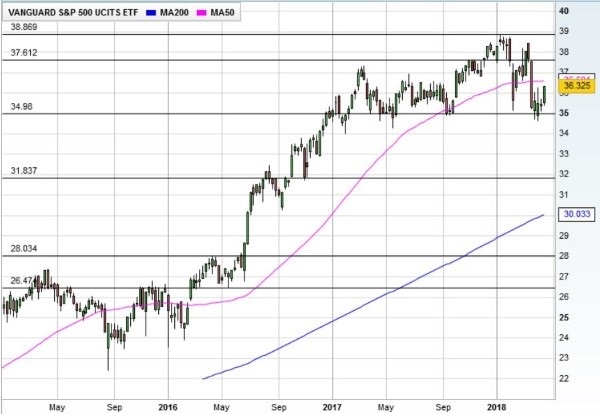Why this results season could be best in eight years
18th April 2018 11:41
by Graeme Evans from interactive investor
Share on
With trade disputes, Russia sanctions and military action in Syria, it's been all too easy for investors to get distracted by the geopolitical noise and lose sight of what remains a pretty impressive earnings picture.
The first quarter results season is now underway, with UBS expecting that Wall Street will see its best three-month period for earnings since 2010.
If the performances of Goldman Sachs and other major US banks are anything to go by, it should be quite a few days. Goldman, for example, reported earnings per share (EPS) of $6.95 on Tuesday, well ahead of expectations of $5.58.
But so far, investors have been wary about buying into this improving earnings picture amid worries about the political climate and rising interest rates. Goldman has not been alone in seeing its results met with a negative share price reaction.
UBS thinks that this focus on politics will soon fade and shift back on to the strong fundamentals if the earnings seasons lives up to expectations.

Source: interactive investor Past performance is not a guide to future performance
In their weekly report, UBS global chief investment officer Mark Haefele and Americas senior equity strategist David Lefkowitz said: "Ultimately, we expect solid economic growth and robust earnings trends to push stock prices higher."
The European bank is overweight on global equities, of which the United States comprises about 50% of the global benchmark.
For the first quarter, they expect EPS growth of 20%. Even when excluding the impact of President Trump's recent corporate tax cuts, EPS is forecast to expand by around 12%.
Revenue growth, which is not distorted by the tax changes, should have grown by 7% in Q1, which would be one of the strongest growth rates in the last six years.
Interestingly, the two sectors accounting for 40% of all earnings - tech and financials - are poised to report EPS growth of 20% or more.
UBS says that most of the growth in tech reflects positive enterprise spending trends and continued demand for cloud services and online advertising.
Financials are one of the main beneficiaries of tax reform, but are also gaining thanks to higher interest rates, improving economic growth and a pick-up in trading revenues. The return of market volatility meant Goldman, for example, was able to achieve a 38% jump in revenues from equities trading.
As a result of the tax cuts package, UBS thinks that the US will see GDP growth of 2.8% in 2018 and 3% in 2019, the strongest period since 2005-2006.
The note from Haefele and Lefkowitz adds: "Corporate earnings growth reflects strong economic momentum.
"US growth remains solid. Healthy business confidence and still-low financing costs are boosting business spending on investments and labour. In turn, this is boosting consumer confidence and driving consumer spending."
The combination of flat stock prices and positive earnings revisions means the S&P 500 price/earnings (PE) ratio - on a forward 12-month EPS - now stands at 16.4x, which is the lowest level in 18 months and down from 18.3x at the start of the year.
While market volatility may persist in the near term, the UBS pair think that this can be offset by a diversified set of countercyclical positions and to hold downside protection through derivatives, rather than to exit equities.
They added: "We expect inflation to be at the Fed's target this year and next, but the market may need more confidence that inflation is not accelerating beyond the central bank's expectations."
These articles are provided for information purposes only. Occasionally, an opinion about whether to buy or sell a specific investment may be provided by third parties. The content is not intended to be a personal recommendation to buy or sell any financial instrument or product, or to adopt any investment strategy as it is not provided based on an assessment of your investing knowledge and experience, your financial situation or your investment objectives. The value of your investments, and the income derived from them, may go down as well as up. You may not get back all the money that you invest. The investments referred to in this article may not be suitable for all investors, and if in doubt, an investor should seek advice from a qualified investment adviser.
Full performance can be found on the company or index summary page on the interactive investor website. Simply click on the company's or index name highlighted in the article.